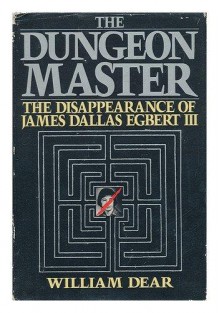
This is the single most notorious of the early Hardy Boys mysteries. 'The Hidden Harbor Mystery' opens with a fantastic set-piece of an ocean liner hitting rough seas and sinking. It is packed with exploding boilers, brawls below decks and panicked passengers. Unfortunately the story veers away from action and into an irredeemable, racist mess.
Valuable papers pertaining to a case of Fenton Hardy's were lost on the ship, meaning the boys will have to obtain new copies. Worse still, a passenger on the ship, Samuel Blackstone, accuses the boys of stealing a large quantity of money and a diamond ring in the chaos. Conveniently, it seems the solution to both problems is heading to the southern town of Hidden Harbor.
The real trouble begins for the reader on the train back to Hidden Harbor. The boys meet black dandy Lukas Jones, who is disrespectful of train-car ettiquette and yet too cowardly to stand up to the conductor. That's a clear signal to readers that Jones is bad news, but the story goes on to describe him as malicious and lazy and dangerous. Spoiler:
Jones is our villain and has contrived to keep the blood feud between the Blackstones and the Rands going strong. Jones also attempts to incite violence against the Rands (and presumably other white people) with his secret society.
The Hardy Boys and Chet Morton are accused of participating in the feud between the Blackstone family and the Rands by both sides and have a difficult time getting straight answers from anybody. Chet is an important part of this mystery, mostly so he can be referred to as fat boy by the narrator. The weight jokes seem to be getting lazier and more mean-spirited. That of course pales to the use of lynching as a plot point here and it being discussed as a common, if unfortunate, practice. The disapproval seems to be more in the act being unmannerly than it being against the law and, you know, murder. Frank and Joe begin to have stronger feelings about lynching when they almost wind up in the noose themselves.
I haven't found any comments from ghostwriter Leslie McFarlane about this book, but Harriet Stratemeyer Adam's comments in a private letter before she approved re-writes in the 1950s and '60s make it clear that she doesn't see what the problem is. She hazards a guess that parents disapprove of Jones, his father, and his friends/society-fellows speaking in dialect. Yeah, that's it.
Sloppy plotting is one thing, and I have rolled my eyes through many cringey scenes before with these books, but 'The Hidden Harbor Mystery' is a new low. A lot has changed in 80 years, but there's an increasing ugliness far beyond the stereotypes present in the earliest books. This book, 'The Mark on the Door' and 'Footprints Under the Window' make a point of highlighting the flaws of everyone who isn't "normal", that is, middle class or wealthy, and white. At least 'Window' had Tom Wat, who the boys joked with and protected, and 'Door' found the boys relying on the skill set of the Yaqui Indian guide in the desert. In 'Hidden Harbor' there is only danger and mistrust and a lot of spiteful little details that aren't worth getting into. The disappointment of our white cast members in the disloyalty of Jones and his father towards their employers topped off the book nicely.
The '60s revision scrapped most of the plot - including the ship - in favor of the local newspaper being sued for libel by the Blackstones for publishing a story about their pirate ancestors. Adams also made sure to solve the race problem in the usual way by eliminating any black characters. Urghs, all around.
Hardy Boys
Next: 'The Sinister Signpost'
Previous: 'The Mark on the Door'

 Log in with Facebook
Log in with Facebook 









